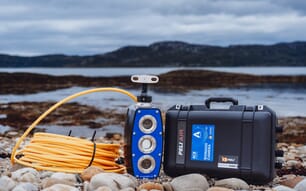With a vision of feeding future generations in harmony with the ocean, the Rose Canyon Fisheries aquaculture project is a partnership between Hubbs-SeaWorld Research Institute (HSWRI) and Cuna del Mar (CdM), a private equity fund dedicated to developing sustainable aquaculture.
The aquaculture project will be built 4.5 miles off San Diego's coast and when fully operational will annually produce 5,000 metric tons (MT) of yellowtail jack, white seabass and striped bass.
Production will be phased, beginning at 1,000 to 1,500 MT in the first production cycle in order to achieve operational efficiency and ensure environmental compatibility.
The project will then gradually expand to 5,000 MT annual production by year eight.
In total, there will be 48 submersible cages, each around 11,000m3.
Yellowtail jack has been chosen as the initial species as cultured juveniles are readily available from HSWRI hatcheries.
The site will also be permitted for other local species which will be interchangeable with yellowtail jack when the project has become operational and depending on availability of juveniles and permit conditions.
Having a vertically integrated culture model the farm will also have year-round production and harvest.
Speaking to WUNC, Don Kent, the president and CEO of Hubbs-SeaWorld Research said that the farm will not hurt the environment and thick rope lines and plastic nets will prevent marine mammals from becoming entangled.
While some environmentalists are concerned with the huge ammount of fish waste that will collect under the cages, Mr Kent explained that computer modeling shows the farm is in deep enough water to dilute the waste.
Escapes should also not be a problem as the cages are designed so the fish will not escape, he said.



